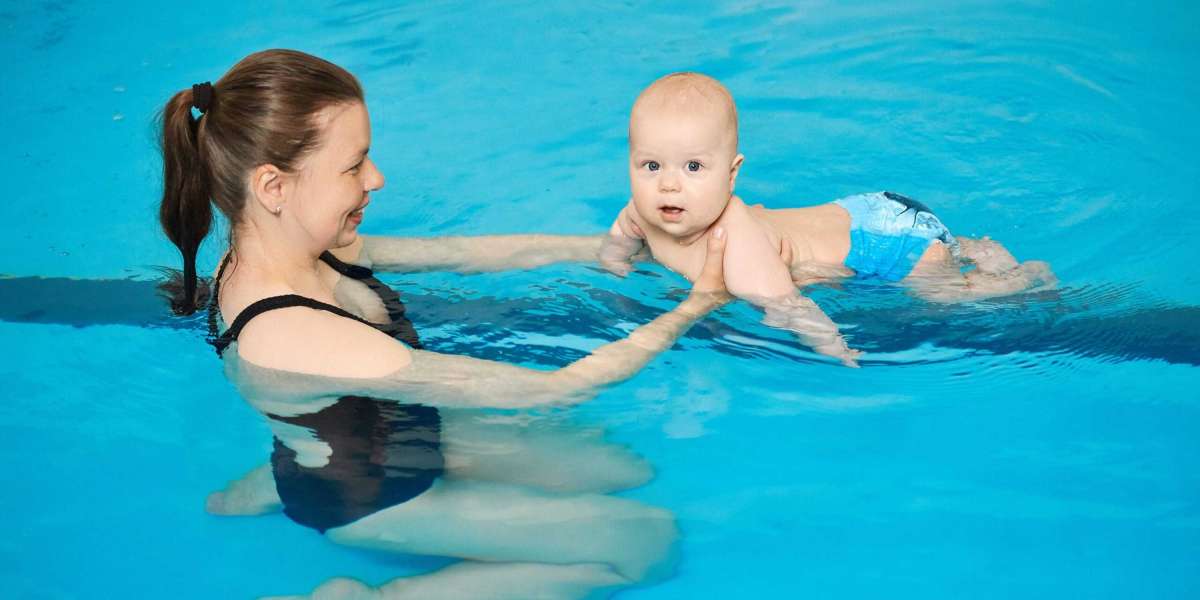For many parents, the journey from their child's first splash to their first confident swim stroke is an exciting one. Searching for “kids swimming lessons near me” often marks the beginning of an important chapter in a child's growth — one that goes far beyond learning
For many parents, the journey from their child's first splash to their first confident swim stroke is an exciting one. Searching for kids swimming lessons near me often marks the beginning of an important chapter in a child's growth — one that goes far beyond learning how to float or swim laps. Swimming is not just a fun pastime; it’s a life-saving skill, a confidence builder, and a gateway to lifelong fitness.
This guide will help you navigate everything from choosing the right swim school to understanding the benefits of swimming lessons for children. Whether your child is a fearless water lover or hesitant around the pool, this is your roadmap to finding the right support, instruction, and environment for their swimming journey.
Why Swimming Lessons Are Essential for Children
Swimming is one of the most essential life skills a child can acquire. According to global safety organizations, drowning remains one of the leading causes of accidental death among children — a sobering statistic that underscores the importance of water safety from an early age.
But beyond the safety aspect, learning to swim offers a wide range of developmental benefits:
Physical fitness: Swimming improves cardiovascular health, builds strength, and increases flexibility.
Motor skills and coordination: The movements in swimming help refine gross and fine motor skills, particularly in younger children.
Cognitive development: Structured lessons encourage focus, discipline, and the ability to follow multi-step instructions.
Social skills: Group swim classes offer kids the chance to engage with peers, fostering teamwork and communication.
Confidence: As children learn to master new techniques and become more independent in the water, their self-esteem grows.
What to Look for in Kids Swimming Lessons Near Me
When searching for the best local swimming lessons, proximity is only one part of the equation. Yes, having a pool close to home makes logistics easier, but the quality of instruction, safety standards, and overall environment are just as important.
Here are key things to consider when choosing a swim school or class:
1. Certified Instructors
Look for programs led by certified swimming instructors, ideally those with specialized training in child development or early childhood aquatic education. Instructors should also be CPR and first aid certified.
2. Class Size
Smaller student-to-instructor ratios are preferable, especially for younger children. This allows instructors to give each child the individual attention they need to progress safely.
3. Age-Appropriate Curriculum
Lessons should be tailored to suit different age groups and skill levels — from water introduction for toddlers to technique refinement for older kids. Ask whether the curriculum includes safety skills such as floating, treading water, and exiting the pool independently.
4. Pool Environment
A well-maintained, temperature-controlled pool is ideal, especially for younger swimmers who are more sensitive to cold. Indoor pools allow lessons to continue year-round regardless of weather.
5. Cleanliness and Safety Protocols
Check that the facility follows strict hygiene standards and has visible safety signage and lifeguards on duty.
6. Trial Lessons
Many swim schools offer free or low-cost trial lessons. Use this opportunity to assess how your child responds to the instructor, peers, and pool environment.
What Parents Can Expect During Lessons
Most swim programs begin with water comfort and safety skills, such as entering and exiting the pool, blowing bubbles, floating on the back, and retrieving toys from shallow water. As children grow more comfortable, they’ll be introduced to basic strokes like freestyle and backstroke, and eventually more advanced techniques like breaststroke or butterfly.
The pace of progress varies from child to child. It’s important to be patient and encouraging — not every child takes to the water immediately. Celebrate small wins: their first unassisted float, successful submersion, or a new skill mastered.
For toddlers and preschoolers, lessons often include playful elements like songs, toys, and games, helping them associate the pool with positive experiences. Older children may enjoy more goal-oriented instruction with clear skill benchmarks and opportunities to earn certificates or progress to swim teams.
Supporting Your Child’s Swim Journey
As a parent, your involvement can significantly enhance your child’s swimming experience. Here’s how:
Be consistent: Try to maintain regular attendance. Like any skill, swimming requires consistent practice.
Stay positive: Celebrate effort over perfection. Avoid comparisons with other kids.
Practice outside of lessons: If you have access to a pool, reinforce skills learned in class in a relaxed setting.
Trust the process: Even if progress seems slow, your child is building comfort and awareness that will benefit them long-term.
Frequently Asked Questions About Kids Swimming Lessons
Q: What’s the best age to start swimming lessons?
A: Many experts recommend starting between 6 months and 3 years old for water familiarization. However, structured independent lessons typically begin around age 4 when children can follow instructions and have better motor control.
Q: How long does it take to learn to swim?
A: This depends on the child’s age, comfort level, consistency, and the quality of instruction. Some children pick up basic skills in a few months, while others may take longer to gain full confidence.
Q: Should I choose group or private lessons?
A: Group lessons are great for social interaction and are more affordable. Private lessons may be better for children with special needs, anxiety, or who require focused attention.
Conclusion: From Splash to Skill
Choosing kids swimming lessons near me is a decision that can shape your child’s physical and emotional growth in powerful ways. It’s not just about learning how to swim; it’s about building confidence, fostering independence, and establishing healthy habits for life.
With the right swim program, a qualified instructor, and a supportive environment, your child’s journey from hesitant splasher to strong, confident swimmer can be a joyful experience — for them and for you.
So the next time you search for “kids swimming lessons near me,” know that you’re doing more than finding a nearby class. You’re opening the door to a lifelong skill that could one day save a life — and will certainly enrich one.




















